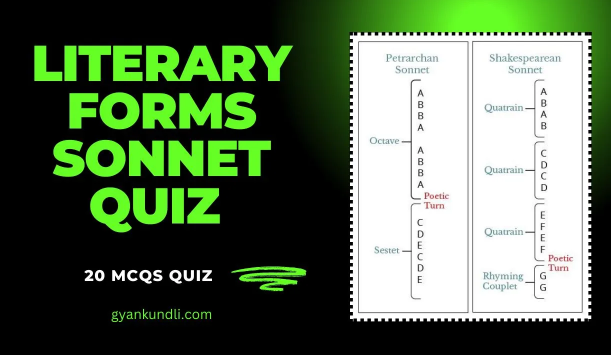A wise saying once noted, "Reading makes a full man; conference a ready man; and writing an exact man." This line, from one of the most enduring essays in English literature, Of Studies by Francis Bacon, is more than philosophical it is instructional. Literary works like Bacon’s essays and the structured beauty of sonnets are cornerstones in the study of English literature. Tools such as Of Studies MCQ Questions and Answers and poetry based assessments provide valuable support for learners aiming to comprehend these classical texts with clarity and depth.
Dissecting Bacon’s Wisdom Through Targeted MCQs
Francis Bacon’s essays, particularly Of Studies, encapsulate profound observations about knowledge, life, and human behavior. Yet, understanding his concise, aphoristic style requires more than casual reading. Here, Of Studies MCQ Questions and Answers become essential. These carefully designed questions help break down Bacon’s complex ideas into manageable sections, guiding readers to focus on key themes such as the purpose of study, balance between practical experience and book learning, and the use of reading in developing judgment. The structured format sharpens interpretation and makes literary analysis more approachable for academic and personal enrichment.

Building Literary Competence Through Essay-Based Questioning
Exploring a text like Of Studies goes beyond simply memorizing lines it involves analyzing Bacon's tone, intent, and rhetorical strategies. Through Of Studies MCQ Questions and Answers, readers engage directly with nuanced statements and learn to evaluate the practical relevance of his teachings. These questions help highlight the historical context of Bacon’s ideas and their continuing influence on modern thought. By reinforcing textual understanding with carefully framed assessments, this method encourages deeper engagement with classical prose, fostering both appreciation and academic proficiency in handling complex nonfiction literature.
Exploring Poetic Precision in the Sonnet Form
The sonnet, with its rigid structure and thematic elegance, has long captivated readers and poets alike. Whether through Shakespeare’s emotional quatrains or Petrarch’s idealized love poems, sonnets demand careful attention to language, form, and rhythm. For students and poetry enthusiasts, Sonnet MCQ modules provide an interactive way to study these compact yet layered compositions. These questions encourage exploration of poetic devices such as metaphor, iambic pentameter, and volta, as well as historical backgrounds and authorial intent. Sonnet MCQ practice not only reinforces form-based learning but also enhances literary intuition and reading discipline.
Understanding Themes and Language Through Sonnet Assessments
Sonnets often revolve around themes of love, time, mortality, and beauty, but their compressed structure makes analysis both rewarding and demanding. Tools like Sonnet MCQ make this process more systematic by helping learners focus on diction, rhythm, and the shifts in tone typically found in the sestet or couplet. These questions challenge the reader to grasp how each line contributes to the overall message and how traditional forms have evolved in the hands of different poets. Repeated engagement with Sonnet MCQ formats builds poetic fluency and prepares learners for higher level literary inquiry.
Conclusion:
Classical literature may be centuries old, but with the right educational tools, it becomes vibrant and relevant to modern learners. Whether exploring Bacon’s intellectual rigor through Of Studies MCQ Questions and Answers or interpreting the musicality and structure of verse through Sonnet MCQ, these methods enhance literary comprehension across genres. They offer a structured, meaningful way to connect with texts that have shaped literary history. A leading resource offering these insightful academic tools is gyankundli.com, where learners can deepen their understanding of literary classics with confidence and clarity.